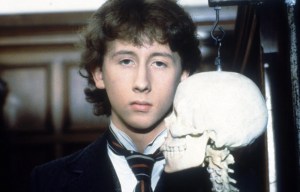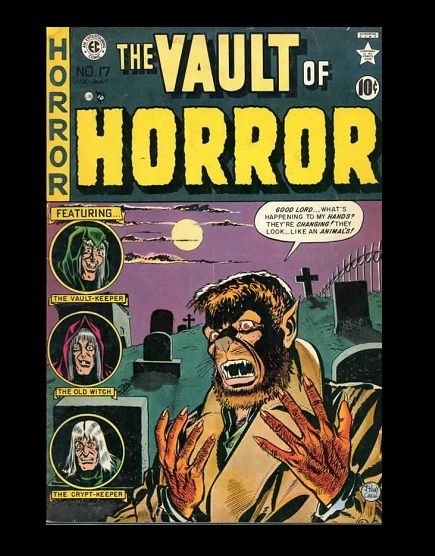I’m accumulating too many topics, so it’s time for another inventory dump. Above is one: Hakeem Jeffries delivers an epic “huminahumina” response to a simple question with a clear answer because he doesn’t have the integrity to admit the real answer. There is no way to distinguish Obama’s bombing of Libya from Trump’s attack on Iran, other than American interests are far more tied to Iran’s fate than Libya’s.
I am reaching the point where I have to reset my brain any time I learn that another freind is inclined to support the Democratic Party, meaning the current version, the one, in 2026, that apparently bases its entire justification for its existence on blind hate for the President of the United States, and seems to think that makes sense as well as make them heroic. And they aren’t even embarrassed about it, no matter how many times they are shown that Trump is finally pursuing courses they advocated not long ago.
The NeverTrump conservatives are arguably even worse. Bill Kristol, who a month ago tweeted out that it would be a disgrace if Trump didn’t take decisive action to “help the brave people of Iran overthrow a cruel and terrorism-sponsoring dictatorship,” yesterday tweeted that “Maybe Rubio should stop inventing ‘imminent threats’ to justify the war his administration started and get to work doing his department’s job of helping Americans in the war zone they created.”
The apparent 50-50 split in the public over the Iran war, coming—let’s see—47 years after it should have, isn’t surprising. One nice, kind, smart, religious freind posted a meme on Facebook showing Jesus destroying a missile. That’s nice. Stupid, but nice. Too many Americans are weenies, too many never have the stomach for necessary military action, too many think guns are icky and “if it saves just one life” to sit back and keep saying “Don’t!” like Joe Biden, that’s being compassionate. Not enough Americans have served in the military or have loved ones who have. Too many don’t want America to shoulder the job of stepping in to fix the biggest problems and crush the worst international evildoers even though the choice is us or no one.
That’s still better than a culture that wants wars.
Meanwhile…
1. At least one furious Trump-Hater, George Will, can demonstrate integrity. In his column “At last, the credibility of U.S. deterrence is being being restored: The perhaps 30,000 protesters who perished in Iran’s streets in early January did not die in vain,” Will endorses the bold action of the President he despises. He wrote,
“Some say that U.S. involvement in Iran constitutes a “war of choice.” That too casually bandied phrase rarely fits untidy reality. America’s Civil War was a choice: Lincoln chose not to heed those — they were not few — who agreed with the prominent publisher Horace Greeley. He said of the seceding Southern states, “Let the erring sisters go in peace.” Lincoln chose against such national suicide. Donald Trump’s administration has chosen not to wager U.S. safety on Iran’s abandoning its multi-decade pursuit of nuclear weapons, or on Iran’s acquiring them but not really meaning “Death to America.”
For Israel, the death of Iran’s self-proclaimed genocidal regime was a choice only in the sense that Israel chose to believe the regime when it called Israel a “one-bomb country.” Tyrants lie promiscuously, but occasionally are candid. In 1939, Adolf Hitler said a world war would mean “the annihilation of the Jewish race in Europe.” Israel exists because Hitler meant that. Israel’s survival depends on forever thinking that nothing is unthinkable.
The U.S. action for regime change in Iran is not sufficient to produce regional tranquility. It is, however, a necessity for beginning to reestablish a precondition for a more peaceable world: the credibility of U.S. deterrence.”
Welcome back to the real world, George! The Ivy League, buttoned-up class snob couldn’t bear being in a nation with such an unmannerly peasant at the metaphorical helm, but at least his principles aren’t completely subject to bias. I may even start reading him regularly again….Nah.
2. Megyn Kelly, on the other hand, is a depressing reminder that a disproportionate number of the “Ew! Violence!” Americans in that 50% are women. Here was her embarrassing take on the U.S. attack:
“First and foremost, I, Megyn Kelly, am praying for the troops. That’s where my mind immediately went. The guys in the and the gals who have to actually carry out this mission… why again? And put their lives on the line… for whom, again? [Those] are the ones who are on my mind, and I prayed for them mightily yesterday and the day before, and I hope you have and will continue to as well. There are massive divisions over what we’ve done here, and people are going to change their minds over the coming days and weeks, one way or the other.
“But my own feeling is no one should have to die for a foreign country. I don’t think those four service members died for the United States. I think they died for Iran or for Israel. I understand how this helps Iran perfectly well. I get it. I mean, I hope, long term, we’ll see… But they seem rather jubilant, 80% of the country does not support the Ayatollah. He was a terrible, terrible man. No one is crying that he’s dead, no normal person, but our government’s job is not to look out for Iran or for Israel. It’s to look out for us.”
a). The “praying for our troops” virtue-signaling is nauseating and manipulative, as well as pretty close to being signature significance for an untrustworthy pundit. b) Preventing a nation that has been screaming “Death to America” from becoming a nuclear power is looking out for the U.S. So is giving oppressed people a chance to be free, because that, after all, is what this nation stands for. c) So Kelly is another “the Jews really run everything” conspiracy theorist! Good to know.
3. I should have posted this on Founders Day on Ethics Alarms. The scene was the oral argument before the SCOTUS Justices. In the course of arguing that heavy marijuana use was a constitutional reason to have one’s Second Amendment rights curtailed, the government, taking an anti-drug position that morphed into an anti-gun position, cited the colonial “habitual drunkard” laws that imposed certain restrictions on individuals who were raging drunks. Justice Neil Gorsuch made a surprising point to respond to the analogy. Gorsuch said, “The habitual drunkard, the American Temperance Society [said] back in the day, has eight shots of whiskey a day. [That] only made you an occasional drunkard,” he said. In the Founding era, Gorsuch said, “you had to do double that. John Adams took a drink of hard cider with his breakfast every day. James Madison reportedly drank a pint of whiskey every day. Thomas Jefferson said he wasn’t much of a user of alcohol; he only had three or four glasses of wine a night!”
“Are they all habitual drunkards who would be properly disarmed for life under your theory?” Gorsuch asked.

Americans used to drink much more before Prohibition than they do now, and drunkenness was far more common as well as less stigmatized until it reached extreme proportions. That doesn’t mean 19th century standards should control ours, but if an advocate for curtailing gun rights is going to cite 18th and 19th century authorities, that advocate is obligated to know the cultural context.
4. From the “These people are crazy” and “Res Ipsa Loquitur” files...
5. Imagine: This Atlantic puff-piece is actually talking about Pete Buttigieg, the failed small city mayor who became the most ineffective and incompetent Secretary of Transportation ever while taking long breaks from his job at the worst possible moments. Head Explosion Warning!
“Buttigieg’s critics seem to fault him for the vaguest reasons, many of which come down to: he’s too perfect; he’s not authentic; he’s not a man of the people. It’s an odd line of attack. Is it possible to be too perfect? Is perfection a flaw? Social psychology has documented something known as the “pratfall effect”: the distrust of people deemed too perfect.”
This is, again, Pete Buttigieg getting such fawning treatment, a man whose only qualification for office is that he’s gay at a time when for some reason in the Age of the Great Stupid where and into whom you choose to insert your patootie is deemed a credential.
Too perfect? Here’s this jerk’s Ethics Alarms dossier. Almost as disheartening as Ethics Alarms’ AWOL columnist Curmie’s deterioration due to Trump Derangement is Popehat’s Ken White joining The Atlantic as a pundit. Few publications have disgraced themselves more. I expected better from Ken.
Note: Now WordPress’s page break is malfunctioning again. I give up!








